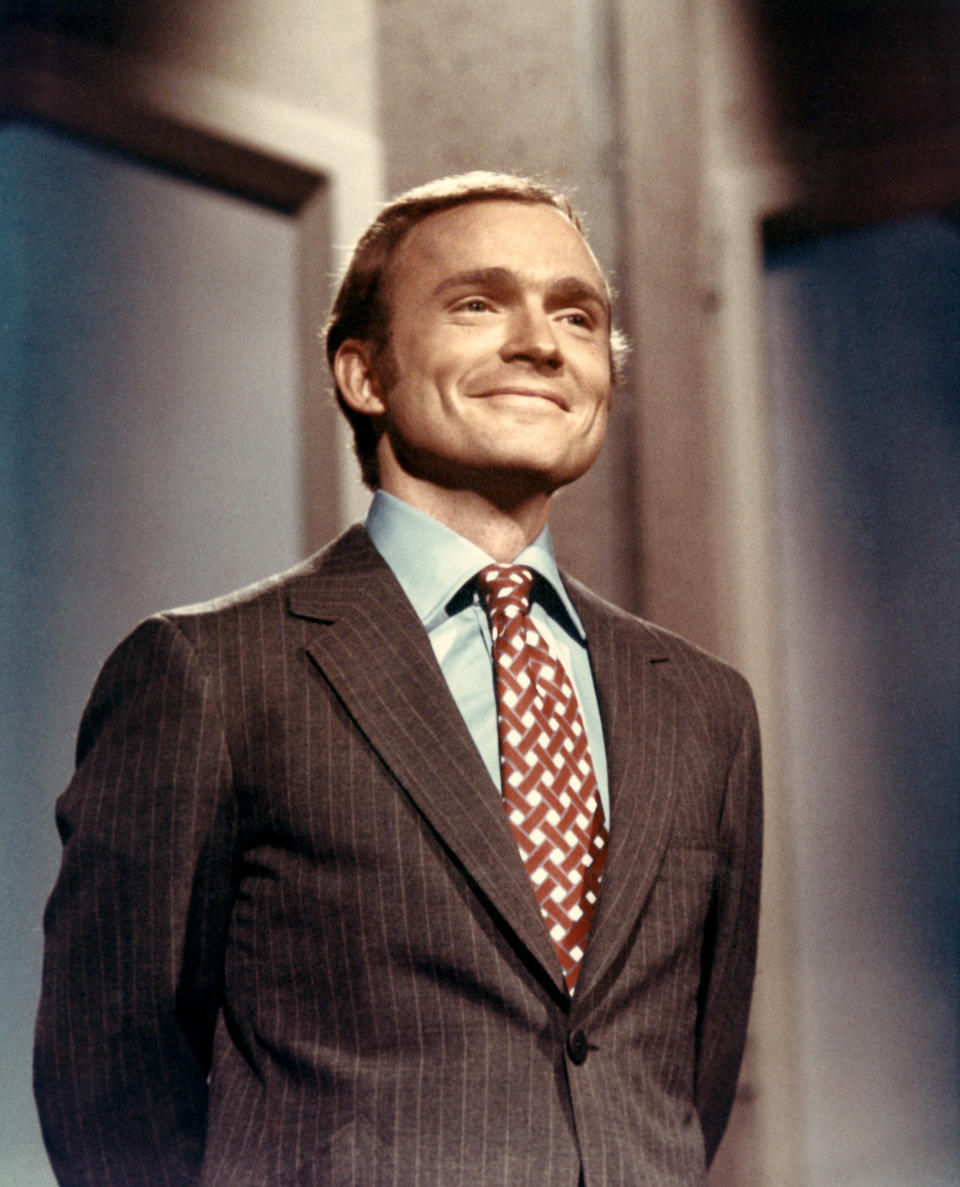No, you never saw a guest die on 'The Dick Cavett Show' (but it did happen)
Talk-show host Dick Cavett, whose signature program The Dick Cavett Show aired on various stations from 1968 to 2007, is an entertainment legend. His guests included everyone from John Lennon to Groucho Marx, from Marlon Brando to Orson Welles, from Katherine Hepburn to Richard Pryor. Yet one of his most talked-about guests to this day is a lesser-known man named J.I. Rodale — because he died while taping the show. Though the 1971 episode never aired, Cavett, 81, told Yahoo Entertainment that he’s still approached by at least 20 people a year who are absolutely convinced that they’ve seen it. Watch Cavett tell the jaw-dropping story, with a bonus Katharine Hepburn impersonation, above.
As Cavettt notes, the great irony of Rodale’s death is that he was visiting the show as a health expert. (Which he was: Rodale founded a leading health and wellness publishing company and brought the idea of organic food to the masses.) After offering his host some asparagus boiled in urine (top that, Goop!) and boasting that he would “live to be a hundred,” 72-year-old Rodale made a strange sound. Cavett was at first confused, then horrified to realize that his guest wasn’t breathing. “I remember thinking, Damn, I wish this wasn’t my show — I don’t know what to do,” he told Yahoo. Despite the CPR efforts of a few interns, it was too late for Rodale.

The episode (which also featured journalist Pete Hamill) didn’t finish taping and wasn’t aired. But the incident, which was subsequently written about by both Hamill and Cavett, has remained fixed in the popular imagination. Much like that nonexistent Sinbad genie movie that many people swear they’ve seen, Cavett fans are adamant that they remember watching Rodale’s death on television.
“People come up to me still and say, ‘I’ll never forget the look on your face when that guy died,'” Cavett said. “I say, ‘Oh, you were there?’ ‘No.’ ‘Well, it never aired.’ And these people would pass a polygraph that they saw it.”

Some would point to this as an example of “the Mandela effect,” a fringe theory that reality is constantly being altered, resulting in shared memories of things that “never happened.” But most would point to it as an example of the fallibility of memory — and the persuasive power of a story well told.
Read more from Yahoo Entertainment:

